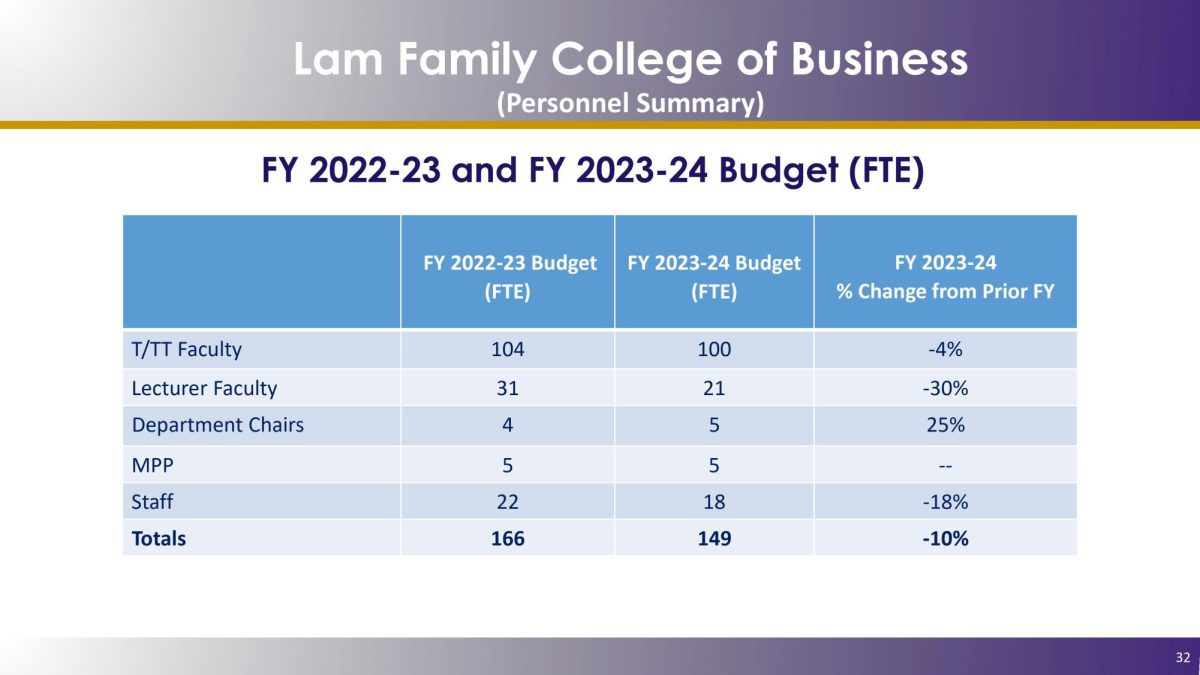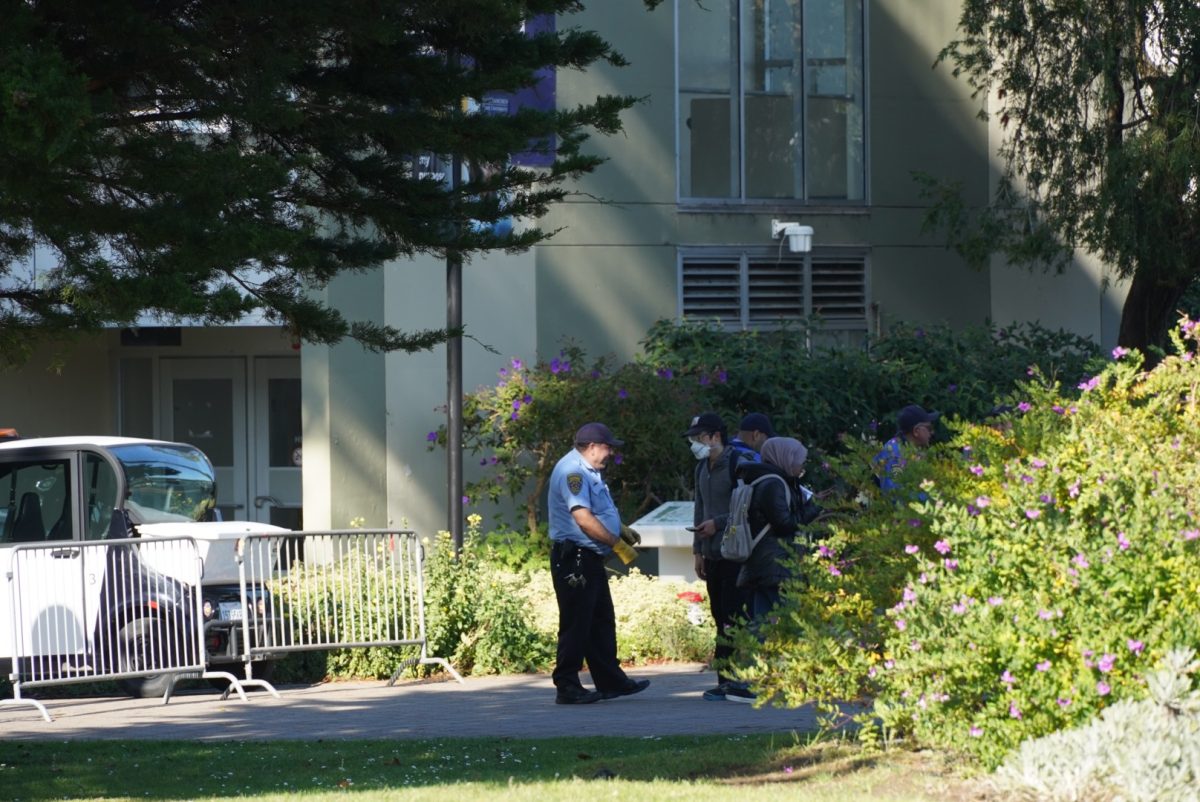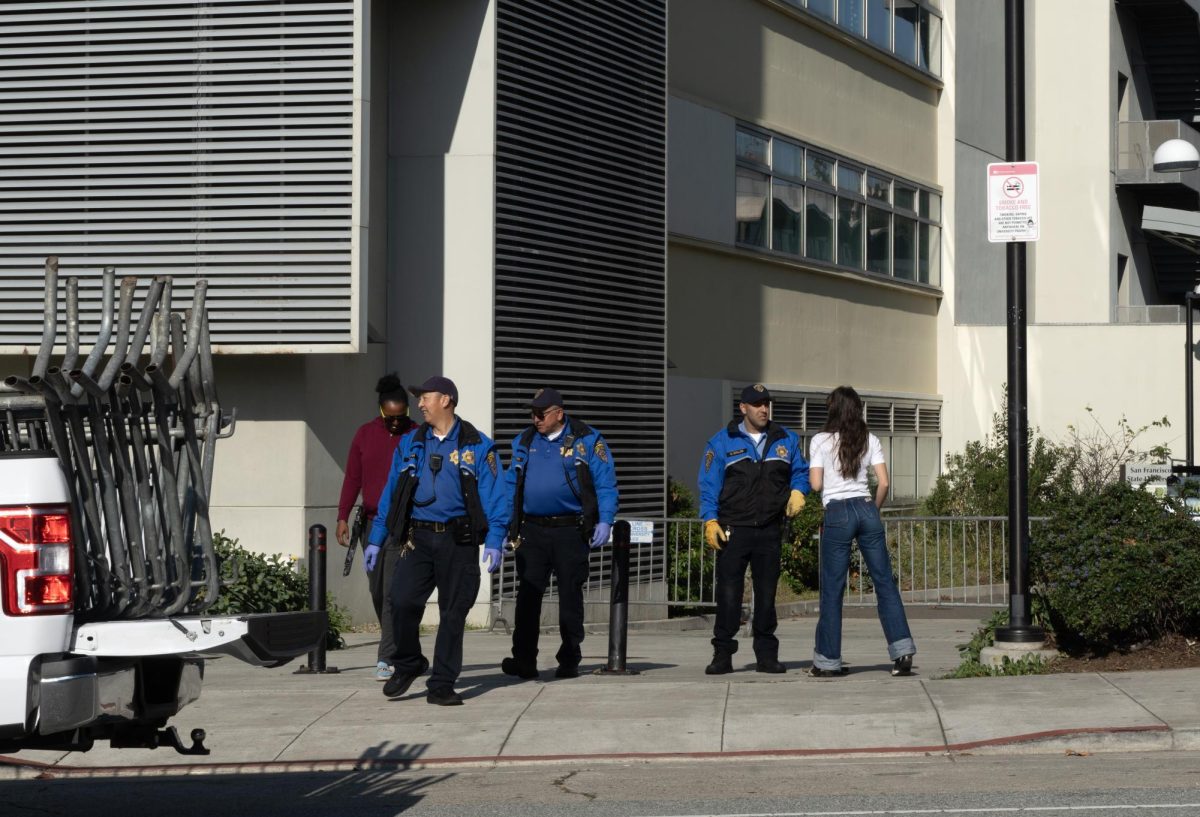The University Budget Committee held the first meeting of the academic year presenting budget cuts to all six colleges and a 25% cut to faculty affairs. The UBC meeting addressed concerns about class cuts, the future of lecturers and decreased enrollment.
“I don’t want to minimize how hard it is to resize. These are people,” said San Francisco State University President Lynn Mahoney. “We will have fewer lecturer faculty because we have lower enrollments. We’re going to have to make do with fewer administrators, lecturers and faculty.”
The final census data for Fall 2023 will not be available until Oct. 9. However, enrollment has been on a decline the past few years, according to data from SF State’s Institutional Research.
The demographics of California have changed over the past few years, according to Mahoney.
“Since about 2012 we haven’t been growing and in 2022 we actually experienced a net loss of population. Within that number, just demographically, there are fewer young people,” Mahoney said. “It doesn’t mean we’re doing anything wrong. We’re going to be smaller….because the state looks different.”
The UBC also includes students who serve as voting members on the committee.
“The institution is held responsible for its financial decisions when students participate on the budget committee. Budget allocations that students feel are not in their best interests or are not consistent with the goal of the institution may be questioned and challenged,” said Shrey Patel, Associated Students’ vice president of finance.
“It’s important that student voices are heard and taken seriously on major standing committees like the university budget committee. The benefit to having student voices on the committee is that we are able to provide the student perspective,” said Iese Esera, AS chief of staff.
Esera believes that increased participation by students in budget creation processes improves understanding.
“It is important for students to have this financial perspective, especially in a time when tuition may be increased by the CSU,” said Esera referring to a proposed tuition increase by CSU.
On the day of the UBC meeting, Mahoney said CSU is in negotiations with the unions and that it’s “going OK.” But said, “We’ve reached an impasse with one at the moment.”
All colleges’ budgets are less than they were last fiscal year, but some have been reduced more than others, according to the data provided at August’s UBC meeting.

All colleges are impacted by between 4% and 13% of a decrease in their budgets from last fiscal year, according to data provided by Academic Affairs.
The College of Health and Social Sciences has the largest impact on its budget compared to last year, with 13% of the school’s budget being cut, totaling over $2.8 million.
The College of Liberal and Creative Arts has the largest dollar amount loss to its budget compared to last year, with a 9% cut, resulting in a loss of over $4 million.
The Lam Family College of Business’ budget is down 5%, with a loss of over $1 million.
The College of Ethnic Studies’ budget is down 11%, with a loss of over $1 million.
The Graduate College of Education’s budget is down 7%, with a loss of $555,000.
The College of Science & Engineering’s budget is down 4%, with a loss of over $1.4 million.
“I noticed that there were a lot of differences between the colleges. I’m curious if that planning is coming from the deans…or if these are suggestions of reductions that need to be figured out,” Daniel Paz Gabriner, Data Manager of Student Services for Metro College Success Program and UBC board member, asked.
“We know the deans and the department chairs know their areas the best, so we are relying on their expertise and trusting them to make the right decisions,” said Amy Sueyoshi, provost and vice president of academic affairs.
President Mahoney is hopeful changes can be made without students feeling the brunt of it.
“We can do this in a way that doesn’t diminish the student experience at all,” Mahoney said.
Sueyoshi echoed this sentiment.
“We are not cutting classes that students need to advance in their degree,” Sueyoshi said.
Budget cuts will likely continue past this academic year, according to Mahoney.
“We will continue to have to make reductions over a three-to-five-year period to align our enrollments with the revenues we have,” Mahoney said.
UBC meetings are open to the campus community.
Patel hopes his engagement inspires other students to participate.
“There is not enough student involvement in the process of budget discussions, even though it is available for every student,” Patel said.
The next UBC meeting is Sept. 21.
The presentation slides were published on the UBC website.









